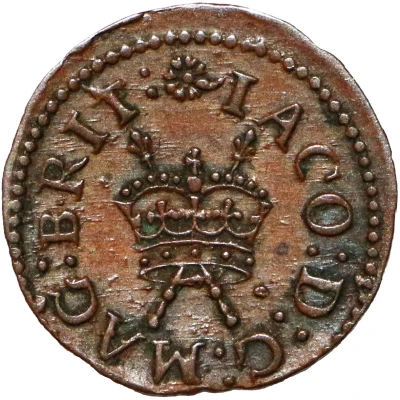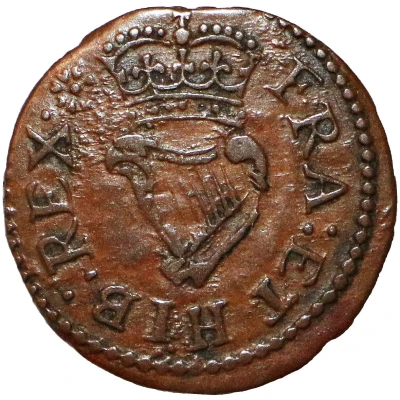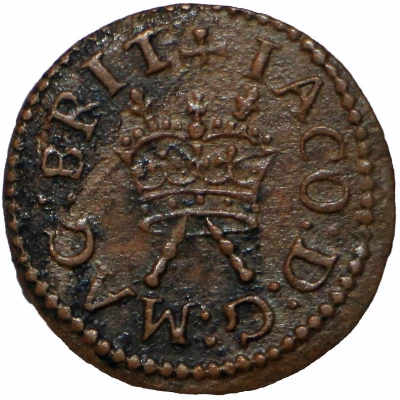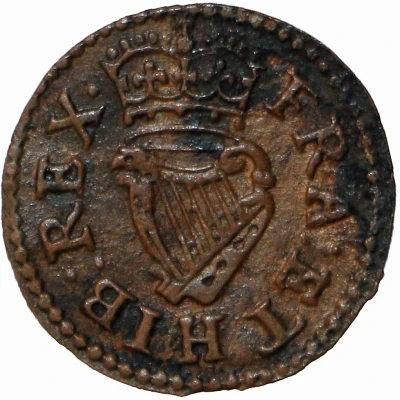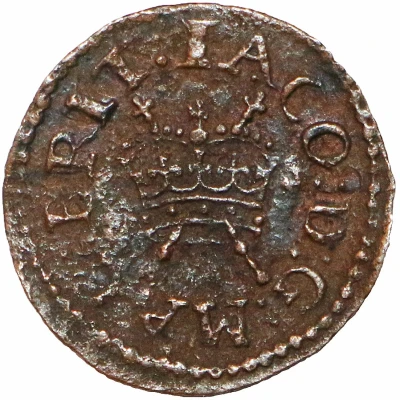
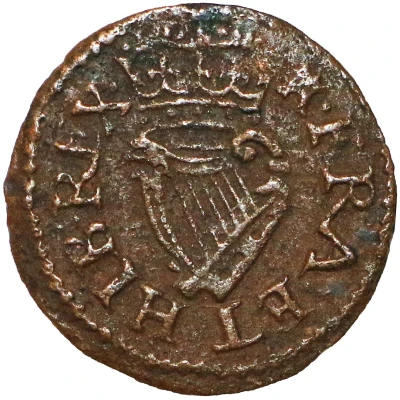

© John Conduitt (CC BY-SA)
1 Farthing - James I Lennox issue; type 1 ND
1616 year| Copper | 0.54 g | 15 mm |
| Issuer | England (United Kingdom, British Overseas Territories and Crown Dependencies) |
|---|---|
| King | James I (1603-1625) |
| Type | Token |
| Year | 1616 |
| Value | 1 Farthing (1⁄960) |
| Currency | Pound sterling (1158-1970) |
| Composition | Copper |
| Weight | 0.54 g |
| Diameter | 15 mm |
| Shape | Round (irregular) |
| Technique | Roller milled |
| Orientation | Medal alignment ↑↑ |
| Demonetized | Yes |
| Updated | 2024-10-08 |
| Numista | N#356385 |
|---|---|
| Rarity index | 95% |
Reverse
Crowned eagle-headed harp with 6 or 7 strings, legend around, privy mark at 11 o'clock.
Script: Latin
Lettering: FRA: ET(.) HIB: REX.
Unabridged legend: Franciae Et Hiberniae Rex
Translation: France and Ireland (continuation of obverse legend)
Comment
House of Stuart (1603-49), James I (1603-25), copper farthing token, production contracted to Lord Lennox.Everson Type 1; privy mark Bell or Tower on reverse only.
Due to a shortage of small value coinage, King James I authorised the private production of farthing pieces. The first such contract was awarded to Lord Harington in 1613 but following his death in 1614 and that of his son shortly thereafter, the patent was passed from Lord Harington's wife, Lady Anne Harington, to Ludovic Stewart, 2nd Duke of Lennox on June 28, 1614.
Interesting fact
One interesting fact about the Token 1 Farthing - James I (Lennox issue; type 1) ND (1616) from England is that it was issued during a time of severe coinage shortages in England, particularly in the early 17th century. To address this issue, private token issuers, such as the Earl of Lennox, were authorized to produce copper tokens that could be used as small change. This coin, made of copper and weighing 0.54g, is an example of one of these tokens, which were used widely in England and other parts of the British Isles during that time.
